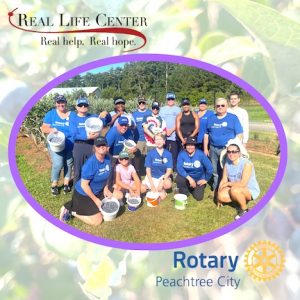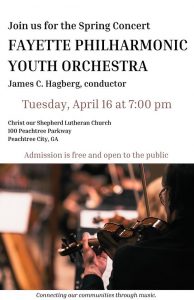These kinds of investment scams come around every few years. They prey on older people by gaining their trust for…

High-end subdivision’s HOA wants excess white-tails eradicated; deer lovers object; animals seeking food on backyard patios
The Fayette County Board of Commissioners heard at its Oct. 13 regular meeting from about a dozen people who said they were speaking “for the deer,” but took no action.
A recent decision by the homeowners association board of the Whitewater Creek subdivision in south Fayette County to eradicate deer in the area has raised the ire of a number of residents from multiple neighborhoods. Some of them spoke to the commissioners during the meeting’s regular comment time and asked them not to allow such an activity where it falls under their jurisdiction. The item was not on the meeting agenda.
Robert Goldberg, who said he started the organization known as Concerned Citizens Against Deer Eradication, noted in his remarks that a petition begun on change.org has accumulated more than 500 signatures.
“We think this is a county issue, not just a subdivision issue,” said Goldberg.
Another speaker pointed out that at least five different neighborhoods have deer, and residents in those areas do not feel it is the right of a single HOA to get rid of all of them. A planned yearly program such as has been suggested “will lead to no deer at all,” she said.
Exactly what the county’s involvement might be was brought into question when Goldberg said that, as he understood the county’s ordinance prohibiting discharge of a firearm within a subdivision, a permit would have to be issued through the Marshal’s Office for the kind of activity the Whitewater Creek HOA is suggesting.
“I don’t want you to approve that,” he said. “Dead is dead, and these deer will never come back.”
It was never stated equivocally what the county’s role would be, but the commissioners assured those in the audience that no permit has been issued for shooting deer.
Later in the meeting Commissioner Randy Ognio mentioned an email he had seen stating that if the HOA reaches a final agreement with the U.S. Department of Agriculture on how to handle the deer issue, the federal agency would come to the county government to address any conflicts with local ordinances.
“That would require being on the agenda of an open Board of Commissioners meeting,” he said.
Thus, the Whitewater Creek board’s recent decision, which some residents complained came with little or no advance notice, is on indefinite hold.
A decision by the board of directors of the Whitewater Creek Country Club homeowners’ association to have a number of deer killed and removed from the large subdivision property along Redwine Road has generated opposition by some residents and by others living in other areas of Fayette County. The HOA board subsequently issued a lengthy letter to all Whitewater homeowners explaining the rationale for the decision.
“For many months the board has been inundated with numerous complaints about safety and health concerns arising from the ever-increasing deer population within our community. This increase is the result of lack of predation and the fact that these deer generally produce multiple offspring each year. In addition, they are attracted to golf course communities like WWC,” the email from the board said.
The email noted that several homeowners have contacted the HOA board to advise that there is significant misinformation being spread throughout the community about the board’s decision to follow the deer management plan recommended by the experts at the Georgia Wildlife Services Program, which operates under the leadership of the USDA.
“Deer-vehicle collisions are a major concern, and we have received several reports of near-misses. It is not unusual to see deer standing or running on our streets,” the email said. “One person has suggested that if everyone drives at 15 mph that we can probably avoid such accidents. We can’t even get people to comply with our posted 25 mph speed limit.”
The email also cited concerns about the introduction of disease-generating ticks present on deer and the susceptibility of deer overpopulation to malnutrition and poor overall health.
“Many residents have complained that dwindling food resources has led to several deer searching for food on their patios,” the email said, adding that over-browsing by deer can lead to the reduction of other wildlife species and result in low species diversity.
“While deer hunting is legal in Georgia, and local hunters had volunteered to assist in population control, the Board wanted to explore all options before deciding on the correct management plan,” the email said. “The board met with the experts from the Georgia Wildlife Services Program who work under the United States Department of Agriculture. They have visited our community on more than one occasion and explained the various options.”
Outlining the options for controlling the population, the board said installing a 10-foot fence would not resolve the issue for several reasons. Nor would the “trap and transfer” method because it is not legal in Georgia.
“The Georgia Wildlife Services Program determined that the best option for WWC was population management. However, because of the residential nature of our community, they did not recommend regulated hunting or managed hunts,” the board said. “Instead, they recommended professional deer removal conducted by the USDA APHIS Wildlife Services under a depredation permit. This was the most effective option utilized by golf course communities throughout our state. Wildlife Services is permitted to use specialized equipment and methods such as high-powered rifles fitted with noise suppressors; infrared and night vision technologies for identification of safe shooting opportunities and to increase the ability to locate deer; and other methods. It should also be noted that deer harvested by Wildlife Services provides venison for charitable donation and biological data that assesses overall deer herd health.”
The email stated the expectation that some residents will disagree with the board’s decision. To that end, the email said, “Please be advised that no one is required to allow Wildlife Services onto their property. The professionals from Wildlife Services will only utilize those properties where the homeowner has provided a signed authorization.”
Stay Up-to-Date on What’s Fun and Important in Fayette
Help us keep local news free and our communities informed.
We’re committed to providing trustworthy, independent coverage of Fayette County, west Coweta, and the people and decisions shaping our shared future.
We’re a for-profit organization, so contributions aren’t tax-deductible—but they’re deeply appreciated.
Latest Comments
GA Power slogan should be " trust nothing verify everything" they say. So is this guy saying that 1) consumer…
Even a broken window let's in the light. Wouldn't worry too much about the editorial proficiency of a journalism student...if…











Leave a Comment
You must be logged in to post a comment.